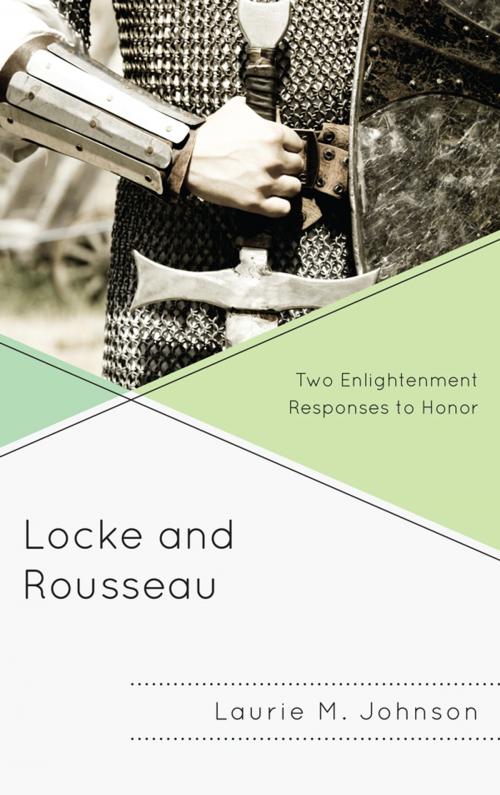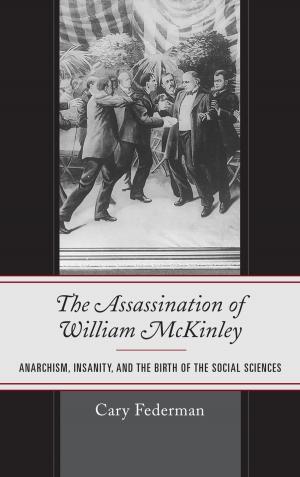Locke and Rousseau
Two Enlightenment Responses to Honor
Nonfiction, Social & Cultural Studies, Political Science, Politics, History & Theory, History| Author: | Laurie M. Johnson | ISBN: | 9780739147894 |
| Publisher: | Lexington Books | Publication: | April 26, 2012 |
| Imprint: | Lexington Books | Language: | English |
| Author: | Laurie M. Johnson |
| ISBN: | 9780739147894 |
| Publisher: | Lexington Books |
| Publication: | April 26, 2012 |
| Imprint: | Lexington Books |
| Language: | English |
Laurie Johnson investigates two Enlightenment-era reactions to honor in Locke and Rousseau. She provides an in-depth analysis of how political philosophers John Locke and Jean-Jacques Rousseau react differently to the place and importance of honor in society. Locke continues the trend of rejecting honor as a means of achieving order and justice in society, preferring instead the modern motivation of rational self-interest. Johnson explores the possibility of an honor code that is compatible with Lockean liberalism, but also points out the problems inherent in such a project. She then turns to Rousseau, whose reaction to Enlightenment ideas reveals our own “divided mood.” Rousseau’s worries and ambivalence about honor are our worries and ambivalence, and his failed attempt to revise honor in a way that works within the modern system highlights how difficult any project to resurrect the value of honor will be. This book will interest anyone who wonders what happened to honor in our world today, including students of communitarianism. Johnson warns us that we cannot simply look to the past, to the ideals of Locke or other Enlightenment thinkers such as the American founders, for answers to our current family, social, and economic problems, because our problems at least partly stem from Enlightenment liberal thought. Instead we must fully recognize this connection before we can start to formulate a definition of honor that can work for us today.
Laurie Johnson investigates two Enlightenment-era reactions to honor in Locke and Rousseau. She provides an in-depth analysis of how political philosophers John Locke and Jean-Jacques Rousseau react differently to the place and importance of honor in society. Locke continues the trend of rejecting honor as a means of achieving order and justice in society, preferring instead the modern motivation of rational self-interest. Johnson explores the possibility of an honor code that is compatible with Lockean liberalism, but also points out the problems inherent in such a project. She then turns to Rousseau, whose reaction to Enlightenment ideas reveals our own “divided mood.” Rousseau’s worries and ambivalence about honor are our worries and ambivalence, and his failed attempt to revise honor in a way that works within the modern system highlights how difficult any project to resurrect the value of honor will be. This book will interest anyone who wonders what happened to honor in our world today, including students of communitarianism. Johnson warns us that we cannot simply look to the past, to the ideals of Locke or other Enlightenment thinkers such as the American founders, for answers to our current family, social, and economic problems, because our problems at least partly stem from Enlightenment liberal thought. Instead we must fully recognize this connection before we can start to formulate a definition of honor that can work for us today.















